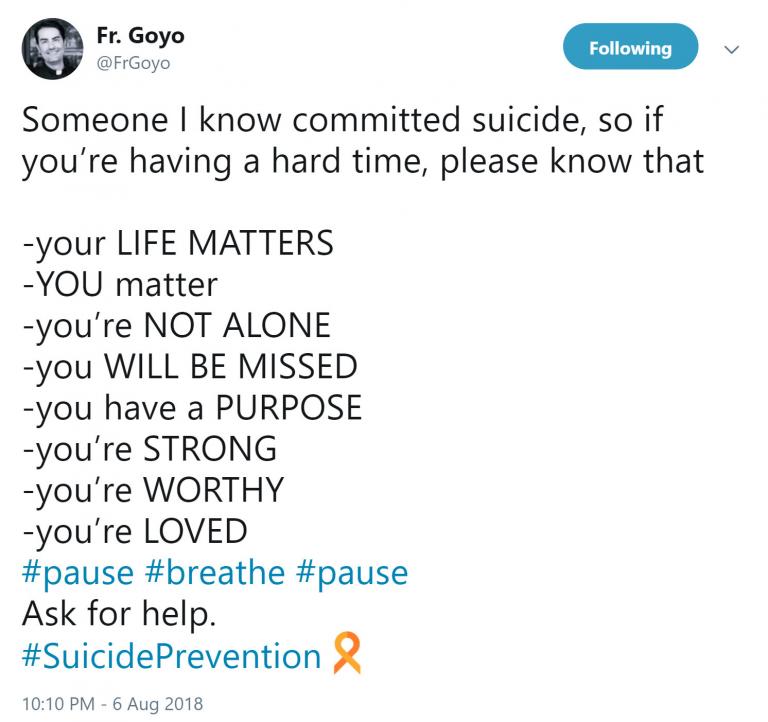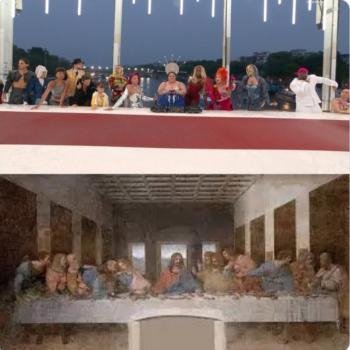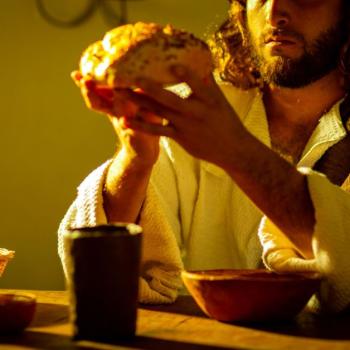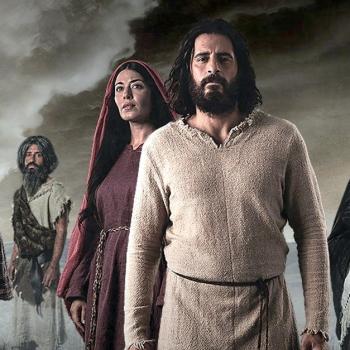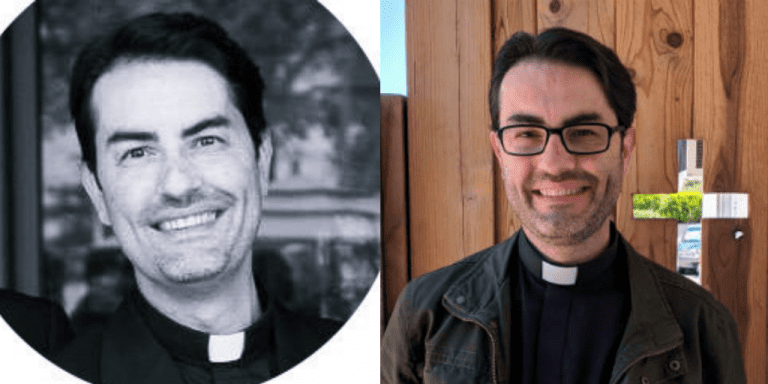 When he’s not cracking jokes and telling stories on Twitter as @FrGoyo, Spanish-born Father Gregorio “Goyo” Hidalgo is just an ordinary parish priest in Southern California, but there’s often nothing ordinary about the issues he faces.
When he’s not cracking jokes and telling stories on Twitter as @FrGoyo, Spanish-born Father Gregorio “Goyo” Hidalgo is just an ordinary parish priest in Southern California, but there’s often nothing ordinary about the issues he faces.
If a parishioner approaches, odds are good that it’s one of two things: either they want something, someone or an event blessed, or they have a problem — anything from a minor confusion about doctrine to, well, about as tough you can imagine. Like doctors, lawyers and cops, clergy of all faiths sometimes encounter people on the worst days of their lives.
Having left the faith for many years and lived a wild secular life before returning — his mother never stopped praying, just like St. Augustine and St. Monica — Fr. Goyo brings understanding, compassion, humor and a gift for communication to his pastoral and social-media work.
Not long ago, I drove up to his parish to have a chat. Click here for what he had to say about an extraordinary hospital wedding he performed, but we also discussed an issue that’s on a lot of people’s minds … including Fr. Goyo’s.
Sept. 10 is ##WorldSuicidePreventationDay, but suicide was in the public conversation long before that. Such recent high-profile celebrity suicides as designer Kate Spade, chef and world traveler Anthony Bourdain and actress Margot Kidder are stark reminders that wealth or fame or success don’t insulate anyone from the effects of mental illness. It can strike people of any ethnicity, sex, belief system or income level.
Here’s some of what Fr. Goyo had to say (starting with acknowledging that he’s not a mental-health professional, and that people should always seek care from one if they need it) …
Faith Helps You Roll With It
(Here he’s commenting on a recent study that showed that women with a strong faith life were less prone to suicide, and that devout, Mass-going Catholic women had an extremely low suicide rate.)
People who go to Mass, they don’t get an angel who comes and tells them all would be so much better, like, “Oh, today’s gonna be like this: You’re going to drive to Simi Valley; you’re gonna find a lot of traffic. When you do that, please be calm; please don’t despair. But once you pass the 101, you’re gonna hit the 118, and it’s going to be fantastic.”
We don’t get an angel to do that. But people who are closer to God, they are already in tune with living in the moment, and living in a different kind of way that is not so desperate to do something. People are more willing to trust in God in the sense, “Whatever happens to me, it’s OK. It’s the best thing that can happen anyway.”
Again, I’m not a psychologist here, but people who are more in tune with the spiritual and with God — and I said “spiritual,” because it’s not only us Catholics — they are more willing to get in tune with themselves and how they react. So, that way, when the moment comes, you’re OK with it.
Feelings Are Nothing and Everything
Again, there are people who are gonna go, “He doesn’t know what he’s talking about,” and probably not. But, people deal too much with feelings. I always tell them this … feelings are nothing, and they are everything. The minute you understand them, we are going to be more OK.
For example, people come to the Confession … I’m not gonna say what they say, but one of the things I hear in general is, “I feel really bad,” or “I feel this,” and “I feel that,” and especially with forgiveness, I give them this example. Imagine, I have a son, and somebody kills my son. I might forgive the person who killed my son, but I don’t feel like flowers and butterflies. No, I still feel angry.
So, the actual act of forgiving something versus the feeling that you feel — sometimes, it doesn’t go together. … We might forgive somebody who did something really bad and still not feel good about it. Now, the spiritual teaches that. You are OK with feeling horrible then; it’s easier than someone who doesn’t know what to do with that feeling.
A Blessing Is Wonderful But Not Actual Medical Care
If you are sick physically, please to go the doctor. Don’t rely on a blessing from the priest. My experience as a priest is, 50% of people who come near me looking for a blessing, they need a doctor. So, now, my job, when I see these, is to be certain and say, “Go to the doctor.”
They probably come to me, because they don’t know what do do, so I take it that way. I say, “OK, fine, I’ll give you a blessing but could you please go to the doctor?” “Oh, yeah, OK, Father, I’ll do that.”
He Knows What They Fear
Growing up [in Spain], we believed that psychologists were only for … people with mental illness, and people who had a lot of money. They didn’t want to resolve the problem, so they paid somebody to solve their problem. So, you grew up thinking that a psychologist or therapist is bad. You only go see them if you are really crazy, or if you are not smart enough to be certain what’s wrong with you.
So you grow up thinking the fact that you might be depressed is not as bad as the shame that you’re going to get from your people if you to a psychologist. So, that is probably why they come to me, because a priest is not a shaming thing, and I put that in quotes.
So, the priest says, “Go to the psychologist, psychiatrist, whatever,” and then, “OK, well, the priest said it, so I don’t have to deal with people [making fun of me].”
Click here to see Fr. Goyo’s conversion/vocation story. It’s on Twitter … of course.
Image: Twitter:FrGoyo/Kate O’Hare



